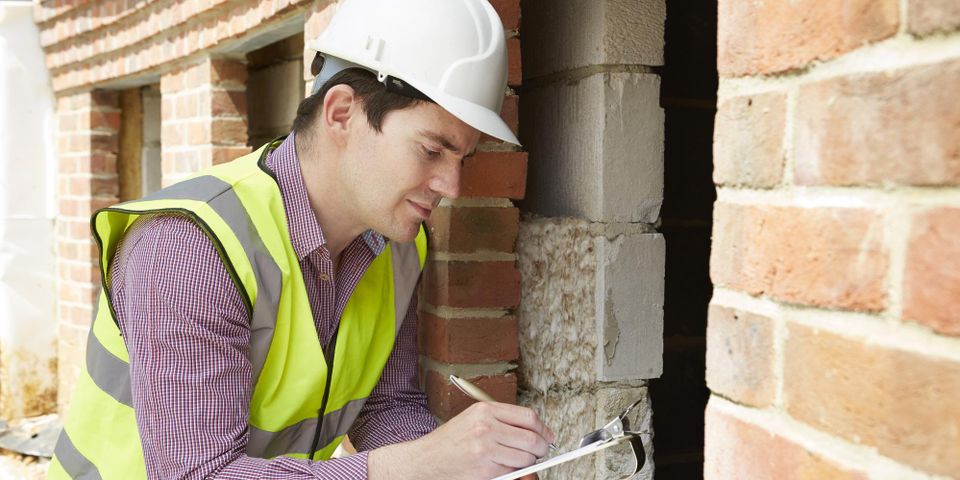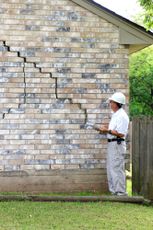
If you’re shopping for a new home, you might notice cracks along the foundation in older homes. While these are the inevitable result of the home shifting, they may also point to a severe structural concern. Is there a substantial difference between horizontal and vertical cracks? In the eyes of home inspectors, the answer is yes—learn more about foundation cracks below.
Vertical Cracks
Concrete is an incredibly durable material under compression, but it will easily crack when exposed to tension. That’s why a concrete foundation supports the full weight of your home, but cracks as elements of the house and ground underneath shift. Most vertical cracks are no cause for concern, although they may permit rainwater to leak into the home. A professional will seal these cracks to prevent moisture from entering.
Horizontal Cracks
In contrast, horizontal cracks  form when the foundation is bowing inward. Poorly drained or compressed soil pressing against the foundation usually causes this bowing. The heavy pressure will gradually push the center of the foundation inward, causing it to crack and eventually creating the risk of structural collapse. A home with horizontal foundation cracks will require extensive work to maintain the integrity of the structure.
form when the foundation is bowing inward. Poorly drained or compressed soil pressing against the foundation usually causes this bowing. The heavy pressure will gradually push the center of the foundation inward, causing it to crack and eventually creating the risk of structural collapse. A home with horizontal foundation cracks will require extensive work to maintain the integrity of the structure.
To resolve the issue, a contractor may strap strong braces to the interior wall. For more extensive cracking, the space around the foundation is excavated to make room for anchors. Before you commit to a home with a bowing foundation, however, you should get the opinion of a home inspector to determine whether the house is worth it.
Before you buy a home, have all cracks, both vertical and horizontal, checked out by a professional home inspector. Buyers in the Lakewood, CO, area can count on Hoodnu Home Inspections for a thorough inspection. Led by Laura Snipan, an InterNACHI® Certified Home Inspector, and they can test for radon, examine the sewer, and provide detailed reports, so you know what you’re buying. Visit their website to schedule an inspection or call (720) 539-2080.
About the Business
Have a question? Ask the experts!
Send your question

